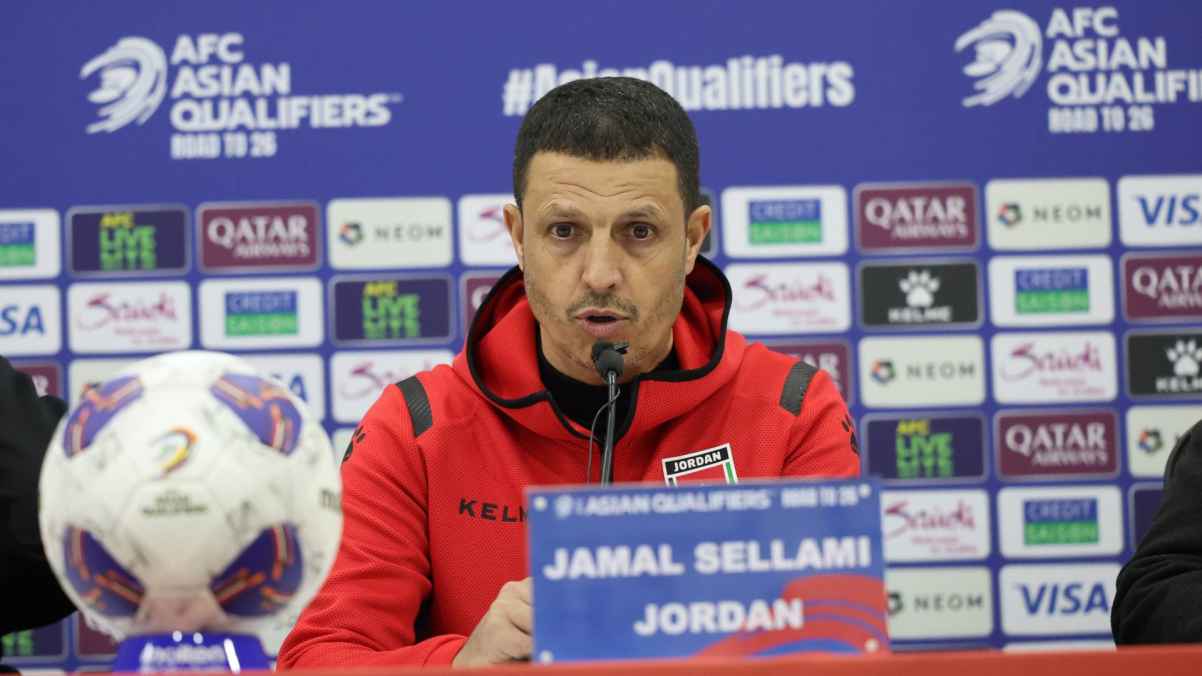Jamal Al-Salami walks a fine line in Arab Cup challenge

- Jamal Salami will be required to manage matches with “surgical” precision, snatching results to secure footing, while simultaneously taking calculated risks by fielding young players at the right moments to ensure technical and moral gains that serve the project.
The Moroccan coach of the Jordanian national team, Jamal Salami, enters the Arab Cup “Qatar 2025” tournament beset by conflicting concerns, placing him between the hammer of demands for the title and the anvil of searching for new talent ahead of the anticipated 2026 World Cup.
It seems that the man who inherited a heavy legacy from his compatriot Hussein Ammouta – Asia’s achiever and champion – now faces his toughest credibility test since taking the job, in a tournament where Jordanian fans accept nothing less than competing for leadership.
Amid the tense atmosphere following the announcement of the official squad and the ensuing sharp criticism of the coach’s choices, Salami remains the final authority and primarily responsible for the results. The Moroccan coach is fully aware that expectations have soared to the sky following historic World Cup qualification, making any early stumble or first-round exit a “risk” that could undermine his technical stability and open the door to calls for change.
Complex technical balancing
The coaching staff of the “Nashama” face the challenge of finding a precise balance between two “fires”: the fierce competition to win the Arab Cup, befitting their status as Asian runners-up, and the urgent desire to test and develop new talents for the future. Salami seeks to provide real opportunities for players like goalkeepers Nour Bani Atiya and Malik Shalabiya, as well as Hussam Abu Al-Dahab, Issam Al-Sumairi, Ali Hijbi, and Awda Al-Fakhouri, to expand the player base ahead of the 2026 trip to North America.
The “group philosophy” bet
The coach relies on his firm conviction, previously stated, that the Jordanian national team’s technical identity shows greater maturity and creativity in short-group tournaments compared to long knockout formats. This philosophy will be applied on the field within a group characterized by balance and competitiveness, including “the Pharaohs” (Egypt) and “the Whites” (UAE), in addition to the rising team facing Kuwait and Mauritania.
In conclusion, Jamal Salami will be tasked with managing matches with “surgical” skill, capturing results to secure footing, while also taking calculated risks by deploying young faces at the right moments to guarantee technical and moral gains that serve the broader World Cup project.
